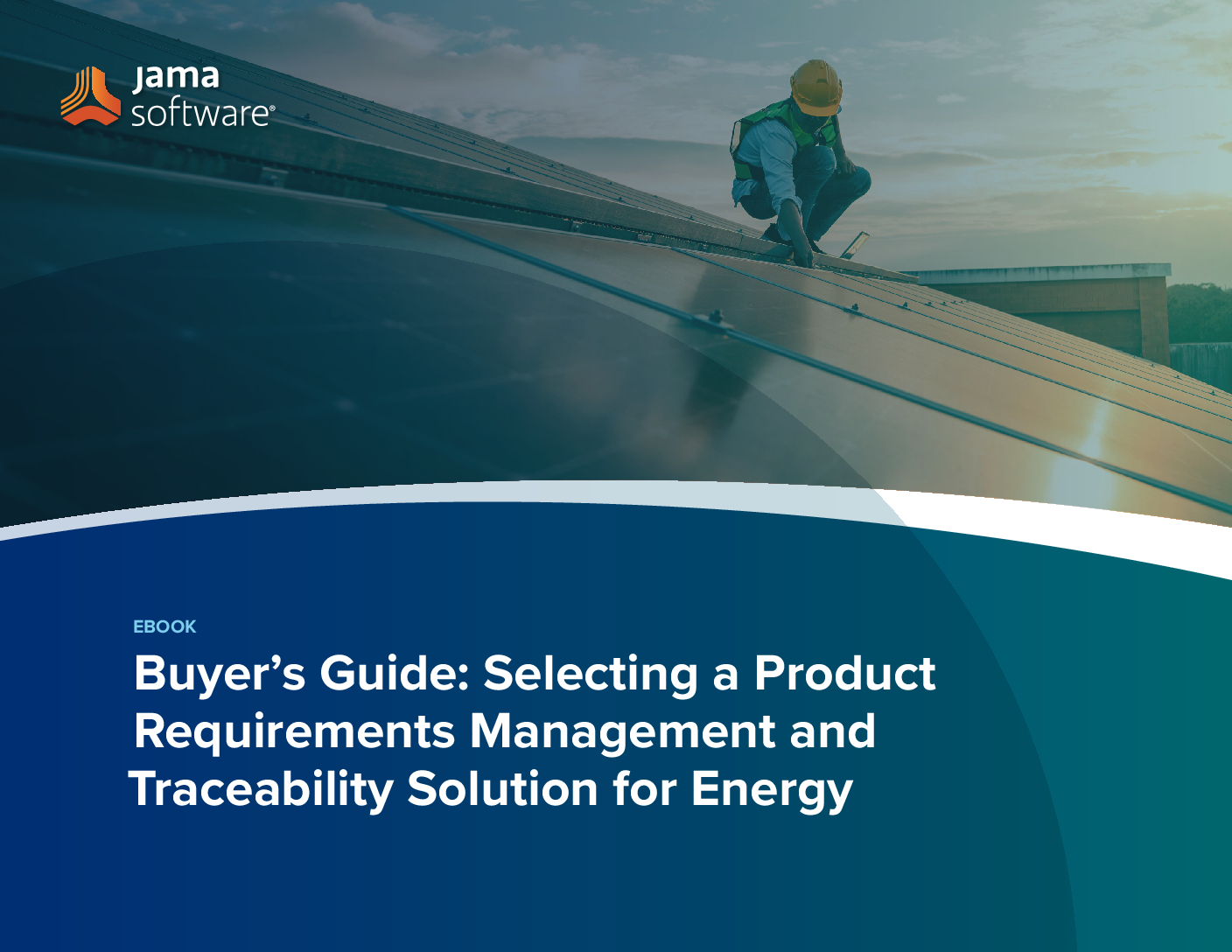
Energy Buyer’s Guide: Selecting a Requirements Management and Traceability Solution for Energy
Energy companies face numerous challenges in managing product requirements and traceability due to growing complexity and enhanced regulatory scrutiny to ensure quality, safety, and security.
The Buyer’s Guide: Selecting a Product Requirements Management and Traceability Solution for Energy explores the key considerations for energy companies facing the challenges of managing complex product requirements and traceability in a highly regulated environment. The guide underscores the necessity for a centralized, digital solution over traditional document-based tools like Word or Excel, which often lead to inefficiencies, data silos, and inadequate collaboration. For energy companies, using a single, modern platform for requirements management enhances efficiency, accelerates reviews and approvals, reduces rework, and ensures compliance with regulatory standards.
It details the core business value of a unified product requirements and traceability platform, emphasizing the impact on product quality, speed, and cost control. Challenges with legacy tools include difficulties in tracking requirements, managing updates, documenting compliance, identifying defects early, and collaborating across teams. With modern requirements management solutions, energy organizations can streamline the product development lifecycle, minimize manual data handling, and establish a real-time audit trail accessible to all stakeholders.
The guide also highlights four common pain points: rework, delays in delivery, inefficiencies in stakeholder communication, and late discovery of defects. Rework, a major cost driver, often stems from poorly managed requirements. A platform that enables end-to-end traceability can help teams catch issues early, avoid costly mistakes associated with mid-project scope changes, and ensure all requirements are met before advancing. Additionally, the ability to manage stakeholder interactions in a centralized system mitigates delays from inefficient review processes, while a traceable audit trail supports compliance and helps detect and address defects early in development.
A key feature checklist assists in evaluating potential solutions, highlighting that an effective platform should enable comprehensive requirements and risk management, efficient documentation generation, and robust traceability. Implementation should be straightforward, with a strong customer support network and adoption aids like customizable training. Jama Connect® is highlighted as a solution designed to meet these needs, offering a centralized source of truth that supports traceability, compliance, and collaboration across teams. The software’s real-time traceability, baseline management, and verification tools help reduce risk, enhance quality, and ensure that regulatory and safety standards are consistently met.
For energy companies, you’ll learn the importance of adapting to a modern requirements management solution to keep pace with the industry’s complex demands. A platform like Jama Connect enables faster time-to-market, an simplified path to compliance, and streamlined processes, creating a competitive edge and setting the foundation for sustainable, compliant, and efficient operations.
This eBook will help you assess your product requirements and traceability pain points and shape your decisions regarding efficient solutions like Jama Connect that don’t require you to sacrifice quality, speed, or safety.
Download it now to learn how to:
- Identify pain points in your processes
- Qualify the problem with your company
- Narrow down your options
- Build the business case to get the buy-in you need for success
- Prepare for solution deployment and adoption